
General Checkup
General Health checkups can diagnose early signs and symptoms of a medical condition. Early diagnosis can help your doctor to find an appropriate treatment to manage your health condition. General Health Checkups include basic, advanced, male, female, and mental health checkups. Even if you feel alright, it is a good thing to have regular health checkups.

General Surgery
General Surgery involves most of the surgeries related to the parts of the gastrointestinal tract such as the stomach, the biliary tract, the liver, the pancreas, the heart, the colon, the large and small intestines, and the rectum. A general surgery procedure may be open or laparoscopic.
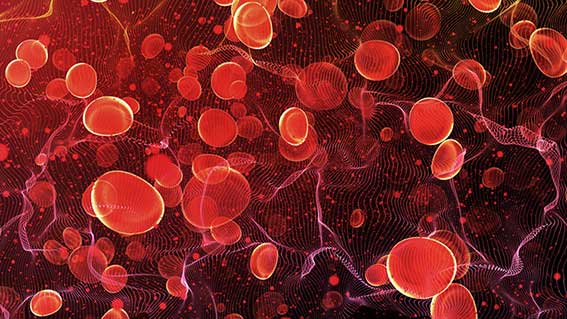
Hematology
Hematology deals with blood, blood-forming organs such as bone marrow, as well as blood-related disorders and diseases. It also deals with blood tests. The most common hematology treatments include blood cancer treatment, hematopoietic cell transplantation for thalassemia, and stem cell transplant for aplastic anemia. Stem cell transplant for sickle cell disease, and multiple myeloma treatment.
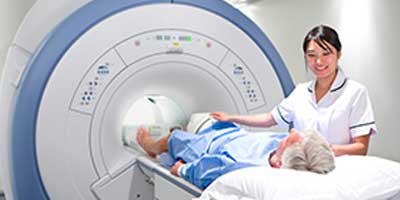
Cancer Care
Cancer occurs when there is uncontrollable cell division in any tissue of the body and it can spread to surrounding tissues too. With advancements in the medical field, cancer treatment is becoming more effective day by day. The survival rate of cancer patients is also improving.

Cardiac Surgery Program
Cardiac surgery program refers to all the surgeries related to the heart. If your heart disease cannot be treated with medications, your cardiologist will advise you a surgery. Cardiac surgeries might be open or minimally invasive.

Orthopedics
Orthopedics deals with the medical conditions related to the musculoskeletal system, which includes muscles, bones, joints, ligaments, and tendons. Most of these issues are due to injury or age-related wear and tear. The most common orthopedic treatments include bone fracture repair, bone grafting, arthroscopy, knee replacement surgery, and hip replacement surgery.

Bariatric Surgery
Bariatric surgeries are done for weight-loss purposes when all conventional weight-loss treatments have failed. Surgeons may advise it for individuals with severe obesity and particular health issues. The most common bariatric surgery treatments include gastric bypass, liposuction, gastric sleeve, adjustable gastric band, and biliopancreatic diversion with a duodenal switch.

Dentistry & Orthodontics
Dentistry and orthodontics deal with the diagnosis, therapy, and management of many oral and dental disorders. It involves promoting oral health and overall well-being. The most common dental treatments include dental implants, E-max dental crowns, inlays, onlays, overlays, tooth extraction and tooth whitening.

Cardiovascular Center
Cardiovascular diseases (CVDs) are the most prevalent cause of death worldwide. CVDs are a collection of cardiovascular and blood vessel disorders that include coronary artery disease, vascular disease, myocardial infarction and many other heart conditions.

Urology
Urology deals with diseases of the urinary system. A urologist treats diseases of male reproductive organs too. The most common urology treatments include kidney stone removal, bladder Stones removal (Cystolitholapaxy), vasectomy, Radical inguinal orchiectomy, and prostate surgery.

Neurology
Neurology is the field of medicine that examines and treats nervous system disorders and medical conditions. Neurologists and neurosurgeons treat all the diseases of brain, spinal cord and nerves. The most common neurology treatments include anterior cervical discectomy, lumbar decompression, lumbar fusion, craniotomy and epilepsy neurosurgery.
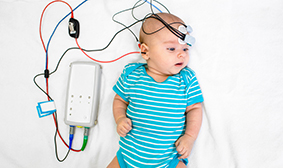
Ear Nose & Throat
ENT Specialists are the medical doctors dealing with diseases of the ears, nose, and throat. They can examine or perform surgeries related to ear, nose or throat. The most common ENT procedures include hearing screening, laser SMR surgery, tonsillectomy, endoscopic sinus surgery and oral cancer surgery.
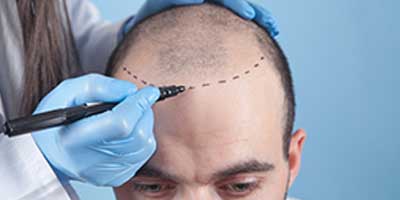
Hair restoration
Hair transplants may be beneficial in the treatment of permanent hair loss. If you are in good health and still have healthy hair growth on your head., you may be a candidate for hair replacement surgery. The most common hair restoration treatments include FUE hair transplant, FUT hair transplant, scalp reduction surgery, scalp tissue expansion surgery and flap surgery.

Cosmetic Surgery
Cosmetic Surgery is done to change the looks of a body part. People get cosmetic surgeries to modify their physical features for cosmetic instead of medical purposes. The most common cosmetic surgery treatments include rhinoplasty, blepharoplasty, abdominoplasty, cosmetic breast surgery, and labiaplasty.

Fertility treatment
Thanks to the modern technology and advancements in the medical field, Fertility treatments might help you get pregnant if you are struggling with infertility. The best solutions for you are determined by your situation and the cause of your infertility. The most common fertility treatments include IVF, artificial insemination (AI) and intrauterine insemination (IUI), surrogacy, egg freezing, and fertility medications.

Ophthalmology
Ophthalmology deals with diagnosing, preventing, and treating all eye diseases and vision problems. If you have symptoms of eye diseases, your general practitioner may refer you to an ophthalmologist. Ophthalmologists also perform eye surgeries. The most common ophthalmology treatments include cataract surgery, laser trabeculoplasty, vision correction surgery, cornea transplant, and retinal detachment surgery.
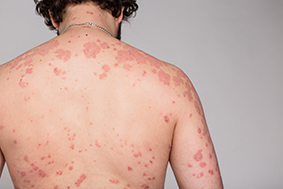
Dermatology
The skin is the body's largest and also most visible organ. It represents the body's health and serves as a barrier against injury and infection. The most common dermatology treatments include surgical excision for mole removal, cryotherapy for skin lesions, laser skin resurfacing, laser hair removal, and mohs surgery.

Allergy and Clinical Immunology
When your immune system isn't functioning properly, your body doesn't have enough immunity against illness. Immunologists, often known as allergists, are specialists who diagnose, treat, and try to prevent immune system issues.

Endocrinology
Endocrinologists diagnose and treat a wide range of endocrine system conditions, such as diabetes, thyroid disorders, osteoporosis, growth hormone deficiency, etc. The glands and organs of the endocrine system produce hormones that control a variety of important activities in our bodies.

Radiology
Diagnostic radiology allows doctors to examine structures within your body. Interventional radiologists are doctors who use imaging to guide procedures. The most common radiology procedures include CT scan, MRI, radiofrequency ablation, radiotherapy for cancer, and radioembolization.
General Checkup
- Diabetic Checkup
- Advanced checkup
- Basic Checkup
- Band Rescue
- Back & Neck Pain
- Cough
- Eating Disorders
- Economical Checkup
- Female Health Checkup
- Hyperbaric Medicine
- Male Health Checkup
- Ergotherapy
- Tubal Cannulation
- VIP Executive Checkup Male
- VIP Executive Checkup Female
- Mental Health Checkup
General Surgery
- General Surgery Consultation
- Adrenalectomy
- Amputations
- Appendicectomy
- Axillary lymph node Biopsy
- Congenital Diaphragmatic Hernia
- Corrective Jaw Surgery
- Cruroplasty
- Diagnostic Laparoscopy
- Esophagectomy
- Epigastric Hernia Surgery
- Gastrectomy
- Hepatectomy
- Hernia Repair
- Hiatal Hernia Surgery
- Incisional Hernia Repair
- Inguinal Hernia Repair Surgery
- Laparoscopic Hernia Repair
- Laparoscopy
- Laparotomy
- Laparoscopic Cholecystectomy
- Laparoscopic surgery
- Liver Transplant
- Lymph Nodes Removal
- Mastectomy
- Orchidopexy
- Snoring Surgery
- Splenectomy
- Thoracoscopic Sympathectomy
- Thymectomy
- Thyroidectomy
- Parathyroidectomy
- Umbilical Hernia Repair
- Varicocele Surgery Open Bilateral
- Varicocele Surgery Open Unilateral
- Colon Surgery
- Breast Surgery
Hematology
- Aplastic Anemia
- Blood Cancer Treatment
- Fanconi Anemia
- Hodgkin's Lymphoma (ABVD) Chemotherapy
- Hodgkins Lymphoma (ABVD)
- Non-Hodgkin's Lymphoma (CHOP)
- Non-Hodgkin's Lymphoma (CHOP) - Chemotherapy
- Leukemia Treatment
- Lymphoma Treatment
- Multiple Sclerosis
- Myeloma Treatment
- Plasmapheresis & Plasma Exchange
- Sickle Cell Disease
- Thalassemia Transplant
Cancer Care
- Brain Cancer Treatment
- Chemotherapy
- Cancer Treatment (Using Dendritic Cells)
- Cancer Treatment (Using NK Cells)
- Surgical Oncology
- Medical Oncology
- Mammograms in 2D and 3D (Tomosynthesis)
- Malignancy Surgery
- Cryosurgery
- Head & Neck Oncology
- Bladder Cancer Treatment
- Bone Cancer Treatment
- Cervical Cancer Treatment
- Chemoembolization
- Colon Cancer (CRC) Treatment
- Esophagus Cancer Treatment
- Fractionated Stereotactic Radiation Therapy
- Green Light Laser PVP Surgery
- Kidney Cancer Treatment
- Leukemia
- Liver Cancer Treatment
- Liver Cancer Proton Therapy - 6 Week Protocol
- Mediastinal Tumors
- Melanoma
- Mohs Surgery
- Oral Cancer Treatment
- Ovarian Cancer Treatment
- Pancreatic Cancer Treatment
- Radiation Oncology
- Radioactive Iodine (I-131) Therapy
- Salivary Gland Cancer
- Single Photon Emission Computed Tomography (SPECT)
- Skull tumor
- Stereotactic Radiosurgery (SRS) Novalis Tx Frameless
- Stereotactic Radiotherapy (SRS) Novalis Tx with Frame
- Stomach Cancer Treatment
- Testicular Cancer
- Uterine Cancer Treatment
- Whipple's Procedure
Cardiac Surgery Program
- Automatic Implantable Cardioverter Defibrillator AICD
- ASD Closure
- Aortic Valve Replacement
- Aortic valve stenosis
- Aortopulmonary window
- Arrhythmia Surgery
- Arterial Blood Analysis
- Arteriovenous Fistula with Graft
- Balloon Valvotomy
- Bentall Procedure
- Biventricular Pacemaker Implantation
- CABG
- CRT-D
- Cabrol Procedure
- Catheterization and Intervention
- Catheter Embolization
- Cardiac Assessment
- Cardiac Electrophysiology Study
- Cardio surgery
- Cardiothoracic Surgery
- Cardiac Catheterization and Angiography Coronary
- Cardiac Nuclear Medicine
- Congenital Cath Study Including Oximetry Analysis
- Coronary Angiography
- Coronary Angioplasty
- Double Chamber Pacemaker Implantation
- Double Valve Replacement
- Endovascular Ablation
- Electrophysiology Study & Radio Frequency Ablation
- EKG – Electrocardiogram, Resting.
- Echocardiograms
- GUCH (Grown Up Congenital Heart) Surgery
- Heart Port Surgery
- Heart Transplant
- Heart Valve Replacement
- Hypertension
- LVAD (Left Ventricular Assist Device)
- MVR (Mitral Valve Replacement)
- Minimally Invasive Direct Coronary Artery Bypass
- MRI Angiography
- Pacemaker Implantation
- Pericardiocentesis
- Patent Ductus Arteriosus device closure (PDA)
- Right Heart Catheterization
- Single Chamber Pacemaker Implantation
- Single Valve Replacement
- Tricuspid valve replacement surgery
- Ventricular Septal Defect Closure (VSD)
- Coronary Artery Bypass Grafting (CABG)
Bariatric Surgery
- Biliopancreatic Diversion
- Endoscopic Retrograde Cholangiopancreatography (ERCP)
- Gastric Ballooning
- Gastric Band Surgery
- Gastric Bypass Surgery
- Gastric Plication
- Gastric Sleeve
- Revision Gastric Bypass Surgery
- Roux-en-Y Gastric Bypass
- Sleeve Gastrectomy
- Sleeve Rescue
- Surgical weight loss (bariatrics) Program for teens
Dentistry & Orthodontics
- 3M Clarity™ SL Self Ligating Braces
- All on Eight System Fixed Porcelain Bridge
- All on Four System with Fixed Acrylic Bridge
- All on Six System with Implants
- All on Six System with Nobel Biocare Implants
- All-On-4 Dental Implants
- Amalgam Removal
- Apicoectomy
- Periradicular surgery
- Braces
- Complete Denture: Mandibular/Maxillary
- Composite Tooth Filling
- Composite Veneers
- Crowns
- Crown - Porcelain/Ceramic
- Crown – Indirect Resin-Based Composite
- Crown-Full Cast Predominantly Base Metal
- Crown-Porcelain Fused to High Noble Metal
- Crystal Braces
- Damon Clear Braces
- Dental Implant
- Dentistry Package
- Dentium Dental Implant with Abutment and Crown
- Denture
- Fixed Braces
- Full Arch Dental Implants
- Gingival Flap
- Gum Surgery
- Implantology
- Invisalign
- Invisible Braces
- Laser teeth whitening
- Lumineers®
- Nobel Bio care Dental Implant
- Orthodontics
- Onlay - Porcelain/Ceramic, Three or More Surfaces
- Onlay - Porcelain/Ceramic, Two Surfaces
- Osseous Surgery
- Overdenture - Complete
- Overdenture - Partial
- Paediatric Dentistry
- Periodontal Scaling and Root Planing
- Periodontal Flap Surgery or Gingivectomy
- Porcelain Veneers
- Pulp CAP-Direct (Excluding Final Restoration)
- Pulp CAP-Indirect (Excluding Final Restoration)
- Removable Appliance
- Removal of Benign Odontogenic Cyst or Tumour
- Regular Teeth Cleaning
- Root Canal
- Retreatment of Root Canal Treatment
- Scaling and Root Planing
- Scaling and Root Planing (Full Mouth)
- Simple Tooth Extraction
- Six Month Smiles Braces
- Snap-on Smile
- Soft Tissue Allograft
- Standard Implant Crown (including Abutment)
- Standard Titanium Dental Implant (Implant only)
- St raumann ITI® Dental Implant
- Surgical Tooth Extraction
- Temporary Dentistry
- Temporary Denture
- Temporary Filling
- Temporary Veneer
- Tooth Extraction
- Veneers
- Zimmer Dental Implant
- Zirconia Crown on Implant
Cardiovascular Center
- Abdominal Aortic Aneurysm (AAA) Repair
- Abdominal Aortic Aneurysm Repair: Endovascular (Elective)
- Abdominal Aortic Aneurysm Repair: Endovascular (Emergency)
- Abdominal Aortic Aneurysm Repair: Open (Elective)
- Abdominal aortic aneurysm
- Aneurysm Surgery
- Aneurysm Clipping
- Aneurysm Surgery - Iliac Endo
- Aneurysm Surgery - Iliac Open
- Angiography
- Angioplasty
- Angioplasty Restenosis (Within Six Months of Index PTCA)
- Angioplasty and Vascular Stenting
- Aortic Root Surgery
- Aortic/Pulmonary/Mitral Balloon Valvuloplasty
- Aortobifemoral Bypass
- Lower Extremity PTA/Atherectomy
- Carotid Endarterectomy
- Carotid stenting
- Carotid Surgery/Stroke surgery
- COPD
- Coronary Artery Bypass Graft (CABG)
- Embolism caused by Air or gas
- Gangrene
- Intra-arterial Thrombolysis
- Percutaneous Transluminal Carotid Angioplasty (With or Without Stent)
- Percutaneous Transluminal Coronary Angioplasty with or without Stent
- Percutaneous Transluminal Coronary Angioplasty with or without Stent Including the Use of Rotablator
- Percutaneous Transluminal Peripheral Angioplasty with or without Stent
- Stent Insertion
- Subclavian Stenting
- Varicose Vein Removal
- Varicose vein stripping
- Varicocelectomy
- Vasculitis
Anesthesiology
Bone Marrow Transplant
- Bone Marrow Transplant
- Pediatric Bone Marrow Transplant
- Bone Marrow Transplant (BMT)
- Autologous Bone Marrow Transplant
- Allogenic Bone Marrow Transplant
Pediatric Cardiology
- Arterial switch operation/ Truncus arteriosus
- Atrial Septal Defect Closure (ASD)
- Atrioventricular Canal Defect
- Balloon Atrial Septostomy
- Double Outlet Right Ventricle
- Fontan
- Glenn Procedure
- Patent Ductus Arteriosus Device Closure Catheterization
- Tetralogy of Fallot
- Total Anomalous Pulmonary Venous Connection
- Transposition of the Great Arteries (TGA)
- Valvuloplasty
Pediatric care
- Pediatric - Head and Neck Proton Therapy - 6 Week Protocol
- Pediatric -Other Rare Tumors
- Pediatric Allergies
- Pediatric Hepatobiliary Surgery
- Pediatric Opthalmology and Strabismus
- Pediatric Orthopedics
- Pediatric Transplant
- Cleft Lip or Palate Repair
- Dislocation for children/ Treatment of Hip plasma
Genetic Defects
- Abdominal Wall defects: Omphalocele
- Abdominal Wall defects: Gastroschisis
- Chromosomal Abnormalities
- Marfan Syndrome
- Rubinstein-Taybi Syndrome Program
Lung Cancer
- Lung Cancer Treatment
- Lung Cancer Proton Therapy - 6 Week Protocol
- Lung Cancer Proton Therapy Hypofractioned 4 Week Protocol
Prostate Cancer
- Prostate Cancer Treatment
- Rapid Arc with IGRT for prostate cancer
- Rapid Arc with IMRT for prostate cancer
- HIFU (High-Intensity Focused Ultrasound) for prostate cancer
- Cyberknife for Prostate Cancer
- Brachytherapy for prostate cancer
Breast Cancer
- Breast Cancer Treatment
- Breast Biopsy Ultrasound-Guided
- Breast Cancer (CMF, FAC, FEC, 4 AC)
- Breast Cancer (CMF, FAC, FEC, 4 AC) - Chemotherapy
- Breast Cancer (TAC)
- Breast Cancer Proton Therapy - Six Week Protocol
- Breast Cancer Proton Therapy Hypofractionated Four Week Protocol
- Breast Cancer Radiation Therapy
- Breast Cancer Radiotherapy
Nephrology
- Chronic Kidney Disorder
- Endopyelotomy
- Kidney Transplant
- Kidney Tumor
- Kidney Failure
- Nephrectomy
- Nephrectomy - Radical
- Nephrectomy - Simple
- Nephrology and Hypertension
- Nephroureterectomy - Laparoscopic
- Pyeloplasty
- Pyelolithotomy
- RIRS Surgery
- Renal Angiography
- Renal Angioplasty
- Renal Stenting
Dialysis
Sports Medicine
Chinese Traditional Treatment
Orthopedics
- ACL Reconstruction Surgery
- Abscess Debridement
- Acute Trauma & Fracture Care
- Acromioclavicular Joint Repair
- Ankle Arthroscopy
- Ankle Replacement
- Ankle Surgery
- Anterior Cervical Discectomy and Fusion (ACDF)
- Anterior Cruciate Ligament (ACL) Reconstruction
- Anterior Lumbar Fusion (ALIF)
- Arthritis
- Arthritis: Psoriatic
- Arthritis: Rheumatoid
- Arthroscopic Removal of Calcium Deposits
- Arthroscopic Ligament Reconstruction
- Arthroscopic Shoulder
- Bursitis
- Bone Fracture Surgery
- Bone Tumor Removal
- Bone Densitometry
- Bone Graft
- Bow legs correction
- Bunion Surgery
- Carpal Fractures
- Cartilage Repair
- Chronic Radiation Damage to Bone Tissue
- Chronic Bone Infections
- Club Foot Treatment
- Complex Regional Pain Syndrome
- Congenital Hip Dislocation (DDH)
- De Quervain Syndrome
- Dislocated Shoulder
- Direct Lateral Interbody Fusion (DLIF)
- Posterior Lumbar Interbody Fusion
- Posterior Lumbar Interbody Fusion (PLIF)
- Double Knee Replacement
- Dynamic hip screw
- Elbow Arthroscopy
- Elbow Replacement
- Elbow Surgery
- Exostoses
- Failed Back Surgery Syndrome
- Multiple Hereditary Exostoses
- External Fracture Fixation
- Extracorporeal Shockwave Therapy
- Foot Surgery
- Foot & Ankle Deformity
- Fracture
- Ganglion Cyst Removal
- Hammer, claw, or Mallet Toe
- Hand Joints Synovectomy
- Hand Surgery (Microreconstruction/repair)
- Hallux Valgus/Rigidus Surgery
- Height increase and Leg Lengthening Operation
- Hip Arthroplasty
- Hip Arthroscopy
- Hip Replacement
- Hip Replacement Revision
- Hip Resurfacing
- Joint Health
- Joint Reconstruction
- Joint Replacement
- Knee Arthroplasty
- Knee Arthroscopy
- Knee Cartilage Surgery
- Knee Ligament Surgery
- Knee Replacement unilateral
- knee replacement unilateral & unicompartmental
- Knee Replacement Revision
- Knock knee correction
- Lateral Release of the Patella
- MPFL Ligament Surgery
- Meniscus Surgery
- Meniscectomy
- Metal Implant Removal
- Open Reduction Internal Fixation (ORIF)
- Osteotomy
- Osteoporosis
- Osteosarcoma
- Partial Hip Replacement
- Paget's Disease
- Revision Joint Surgery
- Rotator Cuff Surgery (Arthroscopic /Mini open)
- SLAP Tear Repair
- Scaphoid Fracture
- Shoulder Arthroplasty
- Shoulder Arthroscopy
- Shoulder Capsular Release
- Shoulder Impingement Syndrome
- Shoulder Labrum Surgery
- Shoulder Replacement
- Shoulder Stabilization
- Shoulder Surgery
- Shoulder Tendon Reconstruction
- Single Knee Replacement
- Subluxation
- Skull base Surgery
- Slow Motor Development
- Synovium Removal
- Tendon Repair
- Tendinosis
- Tennis Elbow
- Torn Meniscus Repair
- Total Hip Replacement
- Trigger Finger
- Wrist Arthroscopy
- Wrist Instability
Urology
- Benign Prostatic Hyperplasia (BPH)
- Bladder Neck Incision
- Bladder Stone Removal
- Circumcision
- Cystolithotripsy (Laser)
- Cystoscopy
- Epididymal Cyst Removal
- Erectile Dysfunction
- Extracorporeal Shock Wave Lithotripsy
- Intracorporeal Lithotripsy
- HoLEP
- Holmium Laser Lithotripsy
- Holmium TURP
- Hydrocele Testis
- Hypospadias
- Inguinal Orchiectomy
- Kidney Stones Removal
- Laparoscopic Radical Cystectomy
- Laser Prostatectomy
- Litholapaxy
- Meatotomy
- Optical Internal Urethrotomy
- Optical Urethrotomy (Laser)
- Penile Enlargement
- Penile Implant
- Percutaneous Nephrolithotomy
- PESA (Per-Cutaneous Epididymal Aspiration)
- Pneumatic Kidney Stones Removal
- Prostate - Green Light Laser Surgery
- Prostate Biopsy
- Prostate Biopsy with Transrectal Ultrasound
- Prostate Surgery
- Radical Prostatectomy - Laparoscopic
- Radical Prostatectomy - Perineal
- Radical Prostatectomy - Retropubic
- Reverse Vasectomy
- Robotic Radical Prostatectomy
- Surgery for Female Urinary Incontinence
- TURP (Transurethral Resection of the Prostate)
- TUEVP (Transurethral electric vaporization of Prostate)
- Testicular Biopsy
- Trans Urethral Resection of Bladder Tumor (TURBT)
- Ureteral Stone Removal
- Ureteropelvic junction (UPJ) obstruction
- Urethral Surgery
- Urethroplasty
- Ureteroscopic Removal of Stone (Bladder)
- Uretric Reimplantation
- Urinary Incontinence
- Urerolithotomy
- Undescended Testis
- Varicocelectomy
- Vasectomy
Neurology
- Amyotrophic Lateral Sclerosis
- Alzheimer's
- Alzheimer's Disease
- Burr-Hole Aspiration for Abscess
- Cerebral Aneurysm
- Cerebral Palsy & Brain Damage
- Chiari Decompression
- Chronic Sub-dural Haematoma
- Combined Electrochemical Block (CEB) for Spine (Neck and Low Back)
- Combined Electrochemical Block (CEB) for Peripheral Neuropathy
- Chronic Cerebrospinal Venous Insufficiency
- Deep Brain Stimulation
- Epilepsy Treatment
- Huntington’s disease
- Intracranial Abscesses
- Kozyavkin Method
- Neurogenetic Tests - Congenital Deafness
- Neurogenetic Tests - Rett Syndrome
- Neurogenic Tests - Array-CGH Analysis
- Neurogenic Tests - PTEN (Autism with Macrocephaly and Macrosomia)
- Neuromuscular Scoliosis
- Neuropsychiatric Diagnosis
- Neurosurgery
- Occipital Neuralgia
- Radiculopathy
- Sacral Neuromodulation
- Sclerotherapy
- Tilt Table Test
- Vagus nerve stimulation (VNS) therapy
- Vertigo
Ear Nose & Throat
- Adenoidectomy
- Audiometry
- Cochlear Implant
- Dacryocystorhinostomy
- Decortication of Vocal Cords
- ENT Consultation
- Endolymphatic Sac
- Endoscopic Ear Surgery
- Endoscopic Sinus Surgeries
- Endoscopic Surgery for CSF Rhinorrhoea
- FESS Surgery
- Flexible Rhino Laryngoscopy
- Grommets Insertion
- Hearing Aids
- Hearing Assessment
- Impaired Hearing/Deafness
- Laryngectomy
- Laryngoscopy
- Mastoidectomy
- Micro Laryngeal Surgery
- Middle Ear Analysis
- Myringoplasty
- Myringotomy
- Nasal Endoscopy
- Nasal Obstruction
- Nasopharyngolaryngoscopy
- Newborn Hearing Screening
- Ossiculoplasty
- Otolaryngology - Ear, Nose, and Throat (ENT)
- Otoplasty/Ear Deformity Repair and Reconstruction
- Postnasal Drip
- Septoplasty
- Sinus Surgery
- Sinus augmentation
- Stapedectomy
- Thyroid Scan
- Tonsillectomy
- Turbinate Surgery
- Tympanoplasty
- Uvulopalatopharyngoplasty
- Voice Disorders
Hair restoration
- Beard Transplant
- Follicular Unit Extraction (FUE)
- Follicular Unit Transplantation (FUT)
- Hair Transplant
- Scalp Reduction Surgery
- Tissue Expansion Surgery
- Flap Surgery
Spinal Surgery
- Artificial Disk Replacement (ADR)
- Cervical Disc Replacement
- Cervical Discectomy
- Chronic Low Back Pain
- Comprehensive Myelopathy (Spinal Cord Surgery)
- Corpectomy
- Corpectomy with Spinal Column Reconstruction
- Discectomy
- Foraminotomy
- Kyphoplasty
- Kyphosis
- Laminectomy
- Laminoplasty
- Lumbar Disc Replacement
- Lumbar Discopathy
- Microdiscectomy
- Minimal Invasive Spine Surgery
- Nucleoplasty
- Nucleotomy
- Scoliosis Surgery
- Spinal Decompression Surgery L1
- Spinal Decompression Surgery L2
- Spinal Disc Herniation
- Spinal Fusion Surgery
- Spinal Stabilization
- Spine Tumor Removal
- Spinal Cord Injury
- Spinal Cord Tumours
- Spinal Deformity
- Spinal Fusion
- Spinal Stenosis
- Spinal Trauma & Spinal Cord Injury
- Spine Deformities - Corrective Osteotomy
- Spine Fixations
- Spine Surgery
- SpineCor Bracing
- Spondylolisthesis Stabilisation
- Transforaminal Lumbar Interbody Fusion (TLIF)
- Vagal Nerve Stimulator
Obstetrics & Gynaecology
- Checkup
- Breast Biopsy
- Breast Exam
- Breast Lumpectomy
- Breast Tumor Removal
- Cervical Cautery
- Cervical Conization
- Cervical Polyp Removal
- Colposcopy
- Contraceptive Implant
- Core Needle Breast Biopsy
- Cystocele Repair
- Dilation and Curettage
- Ectopic Pregnancy Surgery
- Endometrial Ablation
- Endometriosis
- Female Sterilization
- Focal Adenomyosis
- Four-Dimensional (4D) Ultrasound
- Gynecologic Laparoscopy
- Gynecomastia Surgery
- Hormone Replacement Therapy
- Hysterectomy
- Hysteroscopy
- Intrauterine Device Placement
- Intrauterine Device Removal
- Laparoscopic Hysterectomy
- Laparoscopic Ovarian Cystectomy
- Loop Electrosurgical Excision Procedure (LEEP)
- Manchester Operation (Fothergill Repair)
- Myomectomy
- Oophorectomy
- Ovarian Cyst Removal
- Ovarian Tumor Removal
- Pelvic Adhesiolysis
- Pelvic Exam
- Pelvic Floor Repair
- Pessary Placement
- Posterior Cervical Foraminotomy (PCF)
- Posterior Cervical Fusion
- Presacral Neurectomy
- Psoriasis
- Tubal Ligation Reversal
- Uterine Fibroid Embolization
- Uterine Prolapse Surgery
- Uterine artery embolization
- Uterosacral Nerve Ablation
- Vaginal Hysterectomy
- Vaginal Rejuvenation - Laser
- Vaginal Vault Prolapse Surgery
- Vaginoplasty
Neurosurgery
- BT Shunt
- Brachial Plexus Injuries / Stereotactic Procedures
- Brain Aneurysm Repair
- Brain Tumor Surgery
- Carpal Tunnel Decompression
- Carpal Tunnel Release Surgery
- Cerebral Spinal Fluid Shunt Procedures
- Cranioplasty
- Craniotomy
- Cubital Tunnel Decompression
- Gamma Knife
- Glial Tumor Removal
- Hydrocephalus
- Peripheral Nerve Surgery
- Stereotactic Radiosurgery
- Stereotactic Biopsies
- Trans sphenoid operations
- VP Shunt Surgery
Respiratory medicine
Cosmetic Surgery
- Abdominoplasty
- Abdominoplasty with Flankplasty
- Accusculpt
- Laser lipolysis
- Adolescent Weight Loss Surgery
- Alarplasty and Tippoplasty
- Arm Lift
- BodyTite Liposuction 1 Area
- Body Contouring After Massive Weight Loss
- Body Lift
- Botox
- Brachioplasty
- Brazilian Butt Lift
- Buttocks Augmentation
- Breast Augmentation (with/including implants)
- Breast Augmentation with Fat Transfer
- Breast Lift
- Breast Reconstruction
- Breast Reconstruction (Distant Musculocutaneous Flap, Bilateral)
- Brow Lift (Thread Lift)
- Buccal Fat Removal
- Butt Lift
- Cavitation
- Calf Augmentation
- Chin Implant
- Coolsculpting® Cryolipolysis
- Dimple Creation
- Ear Reshaping
- Eyelid Lift
- Eyelid Surgery
- Endo laser lip lift
- Extended Abdominoplasty
- Facelift
- Facelift with Eyelid Surgery
- Face & Neck Lift (Rhytidectomy)
- Facial Prosthesis
- Forehead Contouring
- Genioplasty
- Hip Augmentation
- Jaw Augmentation
- Lip Augmentation
- Lip Contouring
- Lip Reduction
- Lipostructure: Transplantation of Adipose tissue for temples and forehead
- Liposuction
- Liposuction Lower Abdomen
- Liposuction Tummy, Thighs, and Buttocks
- Lifting Thighs with Technical DE.C.LI.VE (Dermo Cruro Lipectomy Vertical)
- Male Breast Reduction
- Male Breast Reduction Breast Glands Excision
- Male Breast Reduction with Vaser Liposelection
- Male Breast Reduction with Vaser Liposuction
- Mini Tummy Tuck
- Neck Lift
- PIP Implants Replacement
- Reconstruction for Congenital Deformities of the Face
- Reconstruction for Congenital Deformities of the Hand
- Regular Abdominoplasty
- Rhinoplasty
- Smart Lipo Liposuction
- Vaser Liposelection Per Additional Area
- Vaser Liposuction
- Vaser Liposuction Arms
- Vaser Liposuction Buttocks
- Vaser Liposuction Chin
- Vaser Liposuction Thighs
- Vaser Liposuction Tummy
- Labiaplasty
Fertility treatment
- Amniotic Membrane Transplant
- Blocked Fallopian Tubes Treatment
- Caesarean Section
- Co-culture for Embryo Cumulus Cells
- Cryopreservation of Gametes – Embryo
- Gamete Intra-Fallopian Transfer
- Infertility
- IVF- In Vitro Fertilization
- In Vitro Fertilization with Egg Donation
- In Vitro Fertilization with ICSI
- In Vitro Fertilization with IMSI
- In Vitro Fertilization with Laser Assisted Hatching
- Sperm Bank
- Fetal Alcohol Spectrum Disorders
- Fetal Heart Program
- Surrogacy
- Artificial Insemination (AI) And Intrauterine Insemination (IUI)
- Egg Freezing
- Fertility Medications
Ophthalmology
- Anti VEGF Therapy
- Artificial Iris Implantation
- Astigmatism Correction
- Atheroma Removal
- Band Keratopathy
- Benign Essential Blepharospasm
- Blowout Fracture
- Canthoplasty
- Capsulotomy
- Cataract Surgery
- Cornea Transplant
- Corneal Crosslinking
- Detached Retina
- Double Vision
- Epi LASIK (Both Eyes)
- Exophthalmos
- Excisional Biopsy of Conjunctival Tumors
- Eye Cancer
- Eye Muscle Repair
- Eye Surgery
- Femto Laser Cataract Surgery
- Fluorescein Angiogram
- Trabeculectomy for Glaucoma
- Ahmed Glaucoma Valve Implant
- Implantable Contact Lens
- Intracorneal Ring Segment Implantation
- Intraocular Lens Implant
- Intravitreal Injection
- Invisalign
- Iridectomy
- Iridodialysis
- Laser Cataract Surgery with Monofocal Lens Implant
- Laser Cataract Surgery with Multifocal Lens Implant
- Laser Coagulation
- Laser Eye Surgery
- Optic Neuropathy
- Optical Coherence Tomography
- Photorefractive Keratectomy
- Phototherapeutic Keratectomy
- Pneumatic Retinopexy for Retinal Detachment
- Presbyopia
- Pterygium Surgery
- Ptosis Correction
- Ptosis Correction - Bilateral
- Ptosis Correction - Unilateral
- Recurrent Corneal Erosion
- Refractive Eye Surgery
- Refractive Lens Exchange
- Retinal Detachment
- Retinoblastoma Program
- Small Incision Lenticule Extraction
- Staphyloma
- Squint Bilateral
- Squint unilateral
- Squint Correction Surgery
- Tear Duct Surgery
- Trabeculectomy
- Vision Spherical ICL
- Vision Toric ICL
- Vitrectomy
- Vitrectomy + Retinal Detachment
- Wet Macular Degeneration
Dermatology
- Acne
- Aging Skin
- Atopic Dermatitis
- Atopic Dermatitis Treatment
- Contact Dermatitis
- Deep Chemical Peel
- Dermabrasion
- Dermatopathology
- Electrolipolysis
- Facial Fillers
- Facial Peels
- Laser Hair Removal
- LED Light Photodynamic Therapy (PTD)
- LPG-Endermologie
- Mesotherapy
- Microsurgery of Baldness
- Orofacial Massage Treatments
- Silhouette Lift
- Scar Removal
- Skin Grafts or Compromised Skin Flaps
- Urticaria
- Vitiligo
Allergy and Clinical Immunology
- Allergology Consultation
- Allergy Testing
- Chronic Rhinitis
- Chronic Sinusitis
- Allergic Conjunctivitis
- Cosmetic Allergy diagnosis and Treatment
- Drug Allergy Testing and Treatment
- Drug Rashes
- Immunotherapy Allergy Spots Food Allergy Testing and Treatment
- Immune Medicine
- Immunodeficiency evaluation and treatment
- Multiple Sclerosis & Autoimmune disorders
- Insect Allergy Testing and Treatment
- Laboratory Tests for Allergy
- Latex Allergy Diagnosis and Treatment
- Patch Tests for Allergy Diagnosis
- Scratch/Prick and Intradermal Testing for Allergy Diagnosis
- Sjogren's Syndrome
Endocrinology
- Diabetes Consultation
- Diabetes Type 1
- Diabetes Type 2
- Dyslipidemia Reversal
- Endocrinology Consultation
- Foot and Leg Wounds of Diabetic Patient
- Gout/ pseudogout
- Hormone Replacement Therapy
- Hyperthyroidism
- Pituitary Tumors
- Thyroid Biopsy
Radiology
- Interventional Radiology
- CT Angiography
- CT Body
- CT Cardiac
- CT Chest
- CT Colonography
- CT Head
- CT Pediatric
- CT Sinuses
- CT Spine
- CT abdomen
- CT pelvis
- CT scan (3D DENTAL X-RAY)
- MRI BODY
- MRI Breast
- MRI Cardiac
- MRI Chest
- MRI Head
- MRI Musculoskeletal
- MRI Prostate
- MRI Spine
- Sonogram Biopsies
- Sonohysterosalpingography
- Son mammography
- Tc-99M Thyroid Scan
- Ultrasound - Abdomen
- Ultrasound - Musculoskeletal
- Ultrasound Abdomen
- Ultrasound Breast
- Ultrasound Carotid
- Ultrasound General
- Ultrasound Hysterosonography
- Ultrasound Pelvis
- Ultrasound Pelvis
- Ultrasound Prostate
- Ultrasound Thyroid
- Ultrasound Vascular
- Whole Body PET CT Scan
- X-Ray (Radiography), Bone
- X-ray (Plain Radiography), Chest
- X-ray (Radiography), Lower GI Tract
- X-ray (Radiography), Upper GI Tract
Stem Cell Therapy
- Anti-aging stem cell therapy
- Stem Cell Therapy after Trauma or Surgery
- Stem Cell Therapy for Joint Problems
- Stem Cell Therapy for Neurological diseases
- Stem Cell Therapy for Ophthalmological diseases
- Stem Cell Therapy for Wounds
- Stem Cell Transplant for scleroderma treatment
- Stem cell therapy for Autism Treatment
- Stem cell therapy in Gynecology
Gastroenterology & Hepatology
- Capsule Endoscopy
- Colonoscopy
- Colonoscopy with Biopsy
- ERCP
- Endoscopy
- Endoscopic Stenting for Pancreatic Stricture
- Endotherapy of Pancreatic Stones with Extracorporeal Shock Wave Lithotripsy (ESWL)
- Endoscopic Common Bile Duct Stone Removal
- Endoscopic Common Bile Duct Stone Removal
- GERD Acid Reflux Surgery
- Gall Bladder Surgery
- Gallbladder Removal (Cholecystectomy)
- Gastro-Intestinal Bleeding
- Gastroscopy
- Irritable Bowel Syndrome
- Laparoscopic Anti Reflux Surgery
- Liver Disease Consultation
- Liver Cirrhosis
- Liver Disease Evaluation
- Longitudinal Pancreaticojejunostomy (Puestow)
- Polypectomy
- Distal pancreatectomy
- Pancreatic Resections: Pancreaticoduodenectomy
- Pancreatic Resections: Surgery for Chronic Pancreatitis
- Partial Pancreatectomy
- Total Pancreatectomy
- Upper GI Endoscopy
- Oesophageal Atresia, With or Without Fistula
- Oesophageal Stricture
- Variceal Band Ligation
- Variceal Glue Injection
Colon and Rectal medicine
- Abdominoperineal
- Anal Abscess Drainage
- Anal Cyst Removal
- Anal Fissure
- Anal Fistula Surgery
- Anal Sphincter Repair
- Colorectal Surgery
- Hemorrhoidectomy
- Lower anterior resection
- Pit and Fissure Sealing
- Retinoscopy
- Rubber Band Ligation for Hemorrhoids
- Sigmoidoscopy
- Small Bowel Resection
- Stapled Hemorrhoidectomy
Maxillofacial Surgery
Pulmonology
- Abnormal Chest X-Rays
- Bronchoscopic Lung Volume Reduction
- Bronchoscopy
- Chest Physical Therapy
- Carbon Monoxide Poisoning by Inhalation
- Chronic Bronchitis
- CT Guided Percutaneous Lung Biopsy
- Cystic Fibrosis
- Emphysema
- Lobectomy
- Lung Biopsy
- Lung Perfusion and Venogram of Upper or Lower Limbs
- Lung Resections
- Lung Transplant
- Pleural Biopsy
- Thoracentesis
- Thoracoscopy / Pleuroscopy
Radiation Therapy
- Brachytherapy
- Brain Tumor Radiation Therapy
- Colorectal Cancer Radiation Therapy
- Digital Fluoroscopy Studies
- Endo cavity and Interstitial Brachytherapy
- Intraoperative Brachytherapy
- Radiosurgery
- Myelography
- Radiofrequency Ablation of Liver Tumors
- Radiofrequency Ablation of Lung Tumors
- Radiofrequency Quadupole
- Radiology and Medical Imaging
Drug Addiction Treatment
Rehabilitation Services
- Early Rehabilitation Program
- Geriatric Rehabilitation
- Multiple Sclerosis Rehabilitation
- Neurological Rehabilitation
- Pediatric Rehabilitation
- Pulmonary Rehabilitation
- Rheumataismal Rehabilitation
- Urogenital Rehabilitation


 Arabic
Arabic Spanish
Spanish Hindi
Hindi Tamil
Tamil Thai
Thai Swedish
Swedish

